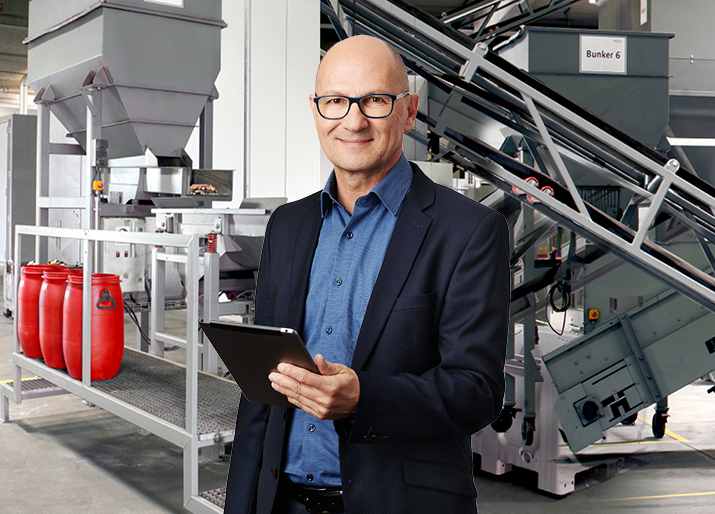For new standards in climate protection
Your innovative partner for maximum recycling efficiency & conservation of resources.

Interesting Facts
How the material cycle of batteries works
The reusable material cycle starts with the batteries being collected in appropriate containers and subsequently sorted so as to properly separate the various types of batteries from one another. Following this, they are taken apart in order to recover valuable materials such as nickel, cobalt, copper and other metals.
These materials are then cleaned and processed so that they can be reused as secondary raw materials in the production of new batteries or other products. The process of battery recycling not only reduces the need to extract primary materials but also minimises the amount of waste that ends up in landfills, placing a burden on the environment.
Implementing a closed-loop economy for batteries conserves valuable resources, reduces harmful greenhouse gases and alleviates the impact on the environment.
Notification requirement in the waste management industry
Special rules apply to the cross-border shipment of waste These were implemented in particular to prevent the illegal export of waste to developing countries. For all EU member states, this is regulated by Regulation 1013/2006/EC. According to this regulation, the cross-border shipment of waste is only permitted when the competent authorities in the export and import countries have provided prior written approval. Depending on the type of waste and the intended disposal procedure, various requirements must be fulfilled:
- Within the EU, non-hazardous waste on the so-called “Green Liste” is subject to the general information requirements of Art. 18 Waste Shipment Regulation.
- Notifiable waste is subject to written notification and approval pursuant to Art. 4 Waste Shipment Regulation, among others.
Our experts will be happy to support you in applying for the necessary permits.
Legislation
The waste management and recycling industry is subject to strict statutory rules. This is not a problem for Saubermacher, since we are certified as a waste management facility and also meet the quality standards according to ISO 9001 and ISO 14001. We are always available to answer any questions you may have regarding the statutory provisions and more.
You will find an overview of the current laws on the recycling of batteries and accumulators here:
https://www.gesetze-im-internet.de/battg/index.html
A list of our certificates and documentation is available here:
Documentation and certificates
Information § 8a of the Hazardous Incident Ordinance (Offenbach location, German)
Your enquiry